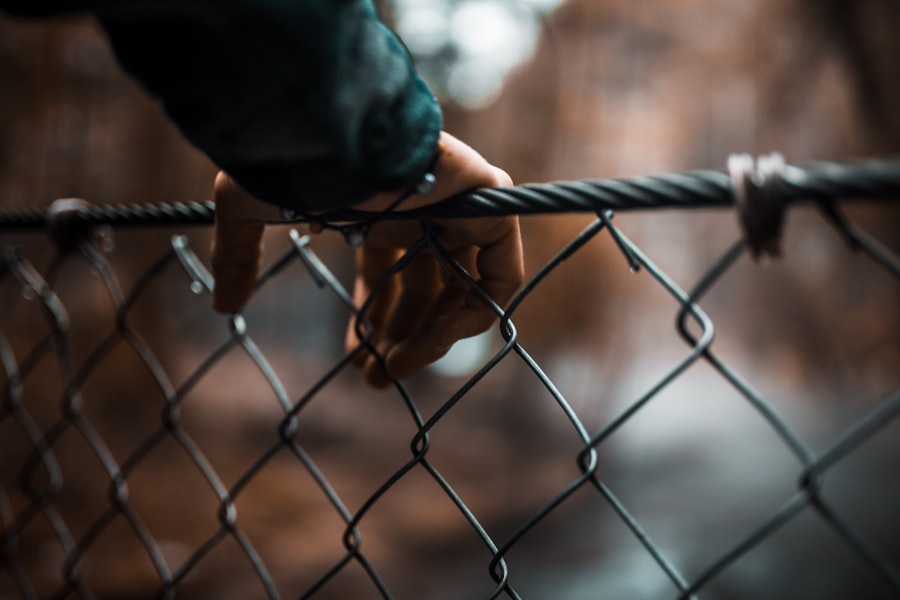Chickens face numerous predators during both day and night. Common daytime threats include hawks, eagles, foxes, raccoons, and snakes, which can quickly infiltrate coops or runs to capture birds. Aerial predators like hawks and eagles are particularly dangerous due to their swift attacks from above.
Nocturnal predators such as owls, coyotes, weasels, and skunks target roosting chickens, utilizing stealth and cunning to overcome their prey’s defenses. Chicken owners must be aware of local predator risks and implement protective measures accordingly. Domestic dogs and cats also present potential dangers to chickens.
Even well-trained pets may succumb to their hunting instincts, potentially harming or killing birds. Chicken keepers should consider their own pets and those of neighbors when developing predator prevention strategies. Understanding the various threats to their flock enables owners to implement effective safety measures and ensure the well-being of their chickens.
Table of Contents
- 1 Securing the coop: Tips for fortifying the chicken coop to keep predators out
- 2 Creating a predator-proof run: Steps for building a secure outdoor area for chickens
- 3 Using deterrents: Methods for deterring predators from approaching the chicken coop
- 4 Nighttime protection: Strategies for keeping chickens safe from nocturnal predators
- 5 Training guard animals: How to use dogs or other animals to protect chickens from predators
- 6 Monitoring and adapting: The importance of regularly assessing and adjusting predator prevention measures
- 7 FAQs
Key Takeaways
- Common predators of chickens include foxes, raccoons, hawks, and snakes
- Fortify the chicken coop with sturdy materials and secure locks to keep predators out
- Build a predator-proof run with buried wire mesh and a secure roof to protect chickens outdoors
- Use deterrents such as motion-activated lights and sound machines to keep predators away from the coop
- Implement nighttime protection measures like locking chickens in a secure coop and using predator-proof lighting
- Train guard animals like dogs to protect chickens from predators
- Regularly assess and adjust predator prevention measures to ensure ongoing protection for the chickens
Securing the coop: Tips for fortifying the chicken coop to keep predators out
Securing Openings
One of the first steps in securing the coop is to use heavy-duty hardware cloth or wire mesh to cover all openings, including windows, vents, and doors. This will prevent predators from gaining access to the coop and keep chickens safe inside.
Maintaining and Reinforcing the Coop
It’s important to regularly inspect the wire mesh for any signs of wear or damage and make repairs as needed to maintain its effectiveness. Another important aspect of securing the coop is to reinforce the structure itself. This can be done by using sturdy materials such as pressure-treated lumber or metal to build the coop, ensuring that it is strong enough to withstand attempts by predators to break in.
Additional Security Measures
Additionally, installing locks or latches on all doors and windows will further deter predators from trying to gain entry. It’s also a good idea to bury wire mesh around the perimeter of the coop to prevent predators from digging underneath and gaining access from below.
Creating a predator-proof run: Steps for building a secure outdoor area for chickens

In addition to securing the coop, it’s important to create a predator-proof run where chickens can safely roam during the day. When building a predator-proof run, it’s important to use the same heavy-duty hardware cloth or wire mesh used for the coop to cover the entire area, including the top. This will prevent predators from gaining access from any direction and keep chickens safe while they are outside.
It’s also important to consider the size of the run when building it. Chickens need plenty of space to move around and engage in natural behaviors such as scratching and dust bathing. A good rule of thumb is to provide at least 10 square feet of space per chicken in the run.
Additionally, providing plenty of hiding spots such as shrubs or small trees can help chickens feel safe and secure while they are outside. Another important consideration when building a predator-proof run is to ensure that it is well-ventilated and provides access to food and water. This will help keep chickens healthy and comfortable while they are outside.
By taking these steps to create a secure outdoor area for chickens, owners can provide their flock with a safe space to roam and forage without fear of predators.
Using deterrents: Methods for deterring predators from approaching the chicken coop
In addition to fortifying the coop and creating a predator-proof run, there are several deterrents that can be used to discourage predators from approaching the chicken coop. One effective method is to use motion-activated lights or sound devices near the coop. These can startle predators and make them think twice about approaching the area.
Another option is to use predator decoys such as fake owls or snakes, which can help deter other predators from coming too close. Another effective deterrent is to use scent-based repellents such as predator urine or citrus sprays around the perimeter of the coop. These scents can help mask the smell of chickens and deter predators from approaching.
Additionally, using electric fencing around the coop can provide an effective barrier against larger predators such as coyotes or dogs. It’s important to regularly assess and adjust deterrents to ensure their effectiveness. Predators can become accustomed to certain deterrents over time, so it’s important to switch things up occasionally to keep them on their toes.
By using a combination of these deterrent methods, chicken owners can help keep predators at bay and protect their flock.
Nighttime protection: Strategies for keeping chickens safe from nocturnal predators
Protecting chickens from nocturnal predators is crucial for their safety, especially when they are roosting at night. One effective strategy for nighttime protection is to lock chickens inside the coop at dusk and ensure that all doors and windows are securely closed. This will prevent nocturnal predators from gaining access to the birds while they are sleeping.
Another important aspect of nighttime protection is providing adequate lighting around the coop. This can help deter nocturnal predators such as owls or raccoons from approaching the area. Motion-activated lights can be particularly effective in startling predators and making them think twice about trying to get close to the coop.
Using guard animals such as dogs or geese can also provide an added layer of protection against nocturnal predators. These animals can help deter predators from approaching the coop and alert owners if there is any sign of danger. By implementing these strategies for nighttime protection, chicken owners can help keep their flock safe from nocturnal predators.
Training guard animals: How to use dogs or other animals to protect chickens from predators

Choosing the Right Breed
When it comes to using dogs as guard animals, it’s essential to choose breeds that have a natural instinct to protect livestock, such as Great Pyrenees or Anatolian Shepherds. These breeds are known for their loyalty and protective nature, making them well-suited for guarding chickens.
Training guard dogs to protect chickens involves socializing them with the flock from a young age and teaching them basic obedience commands. It’s crucial for dogs to develop a bond with the chickens so that they see them as part of their pack and feel a sense of responsibility for protecting them. Additionally, providing proper shelter and food for guard dogs is essential for keeping them healthy and motivated to protect the flock.
Geese as Guard Animals
Geese can also be effective guard animals for chickens due to their loud honking and aggressive nature towards potential threats. Introducing geese to the flock at a young age and allowing them to bond with the chickens can help them develop a protective instinct towards their feathered companions.
By training guard animals such as dogs or geese, chicken owners can provide an additional layer of protection against predators and help keep their flock safe.
Monitoring and adapting: The importance of regularly assessing and adjusting predator prevention measures
Regularly monitoring and assessing predator prevention measures is crucial for ensuring the safety of chickens. It’s important for chicken owners to regularly inspect the coop and run for any signs of wear or damage that could compromise their effectiveness in keeping predators out. Making repairs as needed will help maintain a secure environment for the flock.
Additionally, it’s important to regularly assess the behavior of guard animals and ensure that they are effectively protecting the chickens from potential threats. If necessary, adjustments can be made to training methods or additional guard animals can be introduced to provide extra protection. It’s also important to stay informed about any new predator threats in the area and adapt prevention measures accordingly.
For example, if there is an increase in sightings of a particular predator in the area, additional deterrents or fortifications may be necessary to keep chickens safe. By regularly monitoring and adapting predator prevention measures, chicken owners can help ensure the safety and well-being of their flock in the face of potential threats.
If you’re looking for ways to keep predators away from your chickens, you may want to check out this article on what kind of coop is best for chickens. It offers valuable information on how to create a safe and secure environment for your flock.
FAQs
What are some common predators that threaten chickens?
Some common predators that threaten chickens include foxes, raccoons, coyotes, hawks, owls, snakes, and domestic dogs.
How can I keep predators away from my chickens?
There are several methods to keep predators away from chickens, including using secure fencing, locking chickens in a coop at night, installing motion-activated lights or sound devices, and using guard animals such as dogs or llamas.
What are some signs that my chickens are being targeted by predators?
Signs that your chickens are being targeted by predators include missing or injured chickens, feathers scattered around the coop or yard, and evidence of digging or attempts to break into the coop.
Are there any natural deterrents for predators?
Some natural deterrents for predators include planting thorny bushes or shrubs around the coop, using strong-smelling herbs or plants, and keeping the area around the coop clean and free of food scraps.
Should I use traps or poisons to control predators?
It is not recommended to use traps or poisons to control predators, as these methods can be inhumane and may also pose a risk to non-target animals and the environment. It is best to focus on preventative measures to keep predators away from chickens.
Meet Walter, the feathered-friend fanatic of Florida! Nestled in the sunshine state, Walter struts through life with his feathered companions, clucking his way to happiness. With a coop that’s fancier than a five-star hotel, he’s the Don Juan of the chicken world. When he’s not teaching his hens to do the cha-cha, you’ll find him in a heated debate with his prized rooster, Sir Clucks-a-Lot. Walter’s poultry passion is no yolk; he’s the sunny-side-up guy you never knew you needed in your flock of friends!







